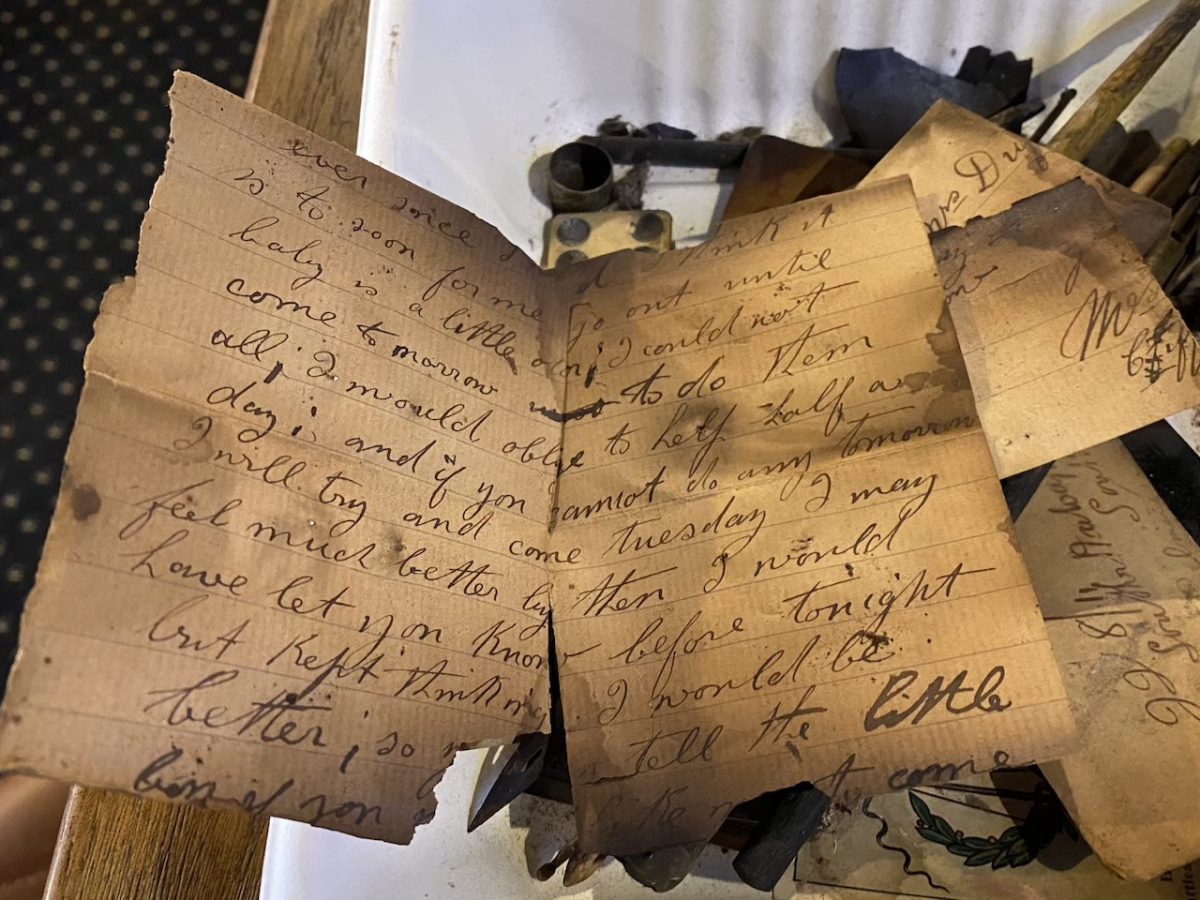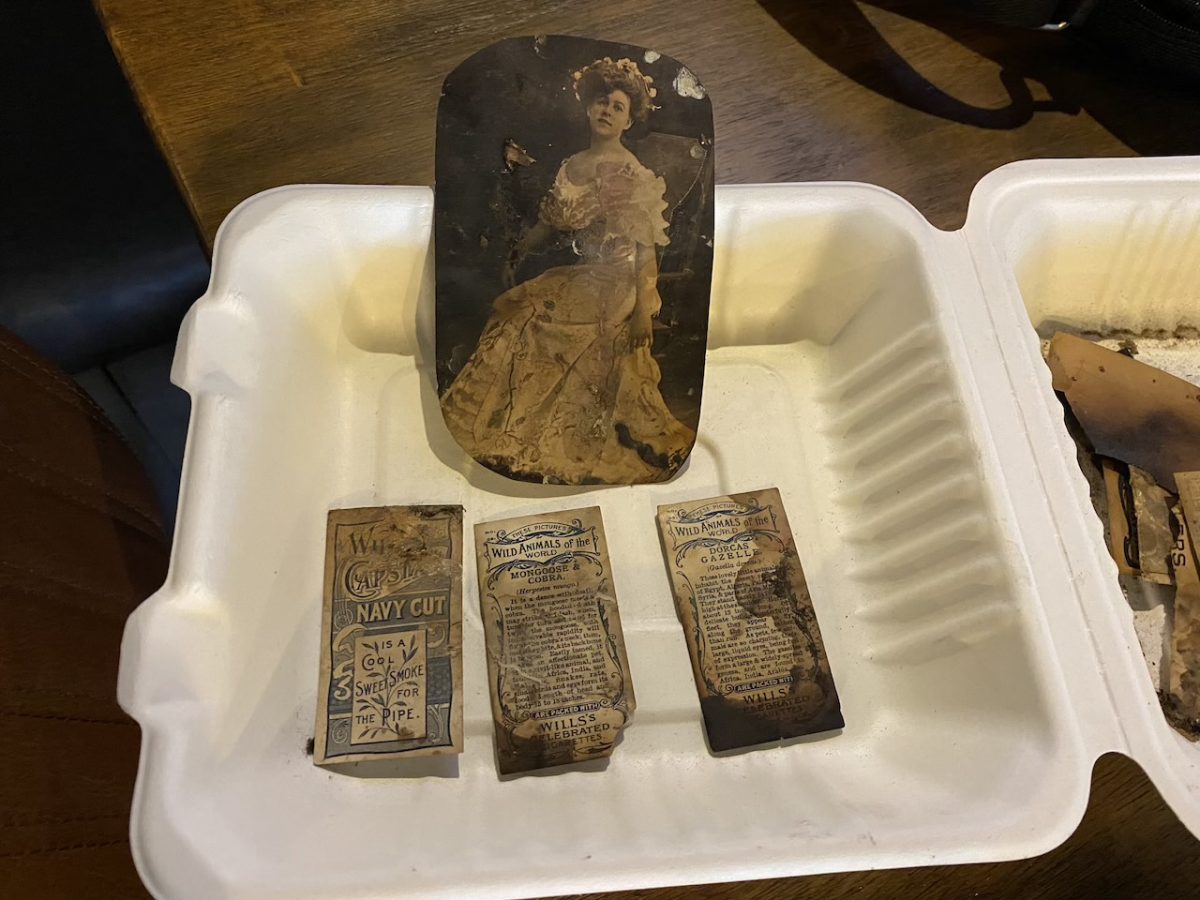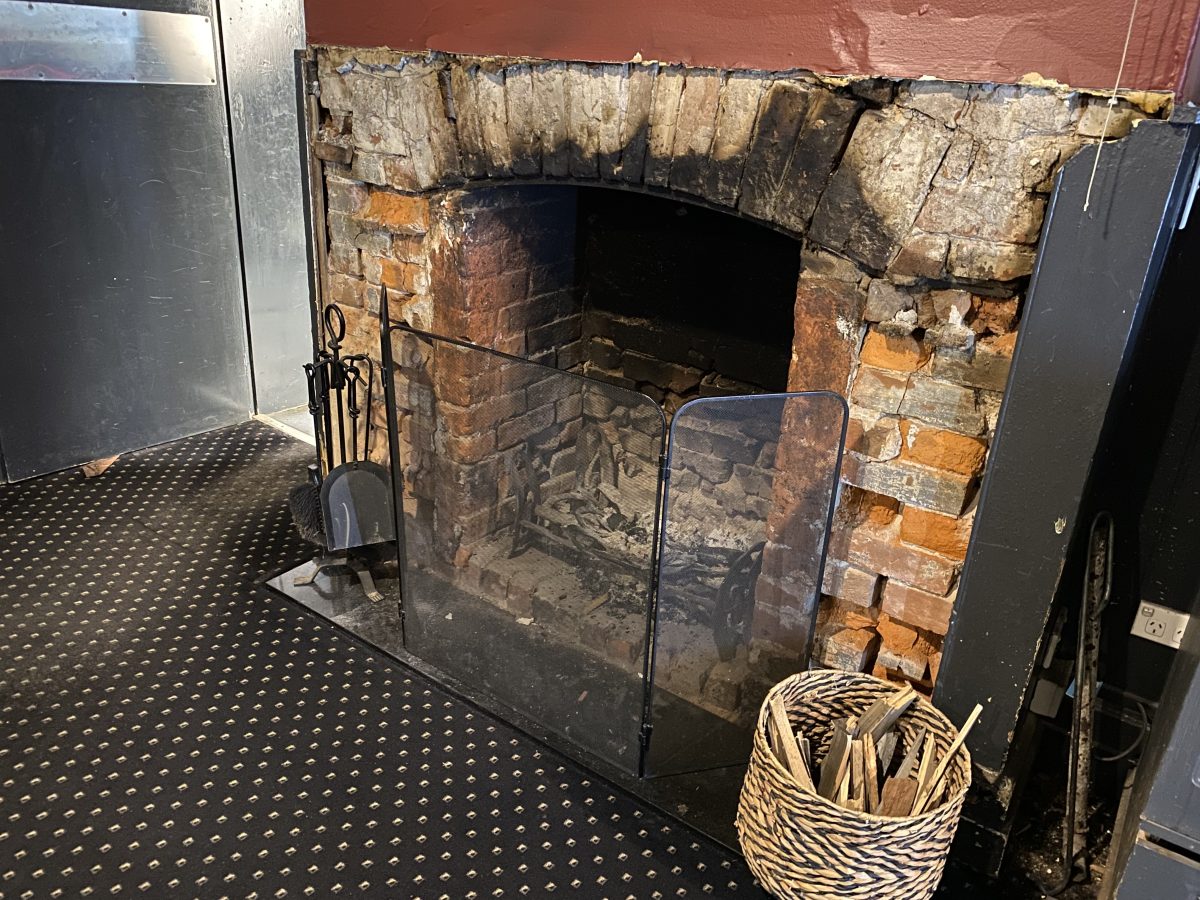
A letter found among the charred papers that fell from a smouldering mantlepiece at the Southern Railway Hotel in Goulburn. Photo: John Thistleton.
Old letters and cigarette cards came tumbling out from behind a mantlepiece above an open fireplace at the historic Southern Railway Hotel in Goulburn one recent Sunday after lunch.
In winter the crackling fire in the pub’s dining room is a constant source of cheerful warmth. But its mantlepiece caught fire after the staff had just completed the lunch service. Someone had stacked the fire a little too high.
Behind the bar, supervisor Montana Sinclair-Foley and licensee Stacey Stephenson noticed smoke coming from the mantlepiece and an awful smell.
Regular drinkers dismissed the smoke, saying it was just coming from the fire, not the mantlepiece.
“Someone poked at it and the middle sort of dropped out and you could see the embers on the inside of the mantlepiece,” Montana said.
“We had a spray bottle, trying to spray it to the inside until the fire brigade got here,” she said.
Stacey had called the fire brigade.
They soon decided the only way to extinguish the fire was to remove the fireplace, and they took their time prising it loose, not wanting to damage it any further.
As they pulled at the mantlepiece, small cigarette cards, a postcard, playing card, slender art paint brushes and a letter fell to the ground, charred and smouldering.
“As we were cleaning up, we found more, little notes and everything,” Montana said.
While words are missing and the grammar is imperfect, the mysterious letter appears to be saying it’s too soon for the writer, perhaps a new mother, to go out until the baby is a little older.
“I could not come tomorrow to do them all. I would oblige to do half a day; and if you cannot do any tomorrow I will try and come Tuesday I may feel much better by then. I would love (to) let you know before tonight but kept thinking I would be better,” the letter says.
The charred remains of a postcard, a photo of a young woman dressed in her finery, and cigarette cards were also among the smouldering pile of papers. Two of the cards are part of a series on the wild animals of the world.
Most old pubs have a history of fires going back to the days when they had several open fireplaces. At the Southern Railway, which opened in 1869 coinciding with the arrival across the road in Goulburn of the railway from Sydney, three fires in one night were no accident.

Cigarette cards and a photo of a young woman also came fluttering down from the hotel’s heavy timber mantlepiece. Photo: John Thistleton.
The mysterious outbreaks broke out on the night of 5 May, 1910.
“There are 10 upstair rooms in the hotel, and shortly after 10 o’clock one of the bedrooms was found to be on fire,” newspapers reported at the time. “The brigade was soon on the spot, and extinguished the flames.
“They had only returned to the station when another alarm was given, and the bed clothes in another room were found on fire. This fire was promptly put out, and everything was reported right.
“Some 15 minutes afterwards an outbreak of fire occurred in one of the front bedrooms, the bedding being on fire. The firemen were downstairs cleaning up at the time, and the fire was again put out.
“The police made an arrest on suspicion today,” the newspapers reported. “The transfer of the licence from Mrs Mary Wynne to Mr Duffy of Junee, was to have been made today.”
The following month Leslie James Davies appeared in court accused of lighting the fires.
The Crown case was that Davies was staying at the hotel and was drinking heavily, and on 4 May he took his luggage to the railway station without the knowledge of the occupants of the hotel. That evening the fires had broken out upstairs in the hotel.
Davies was occupying a room on the top floor and was seen coming away from that room when the fire alarm was first raised. Two hours later he drew a constable’s attention to a second fire in one of the bedrooms, while some time afterwards he was seen near the bedroom where the third fire occurred.

The open fireplace without its grey mantlepiece at the Southern Railway Hotel in Goulburn. Photo: John Thistleton.
The court heard that the hotel’s owner Mrs Wynne was negotiating for the sale of her lease. Davies had offered to arrange for the sale, and afterwards demanded 10 pounds commission. When this was refused, he said something unintelligible.
He was found guilty, and despite appealing against his sentence, was jailed for 18 months.








